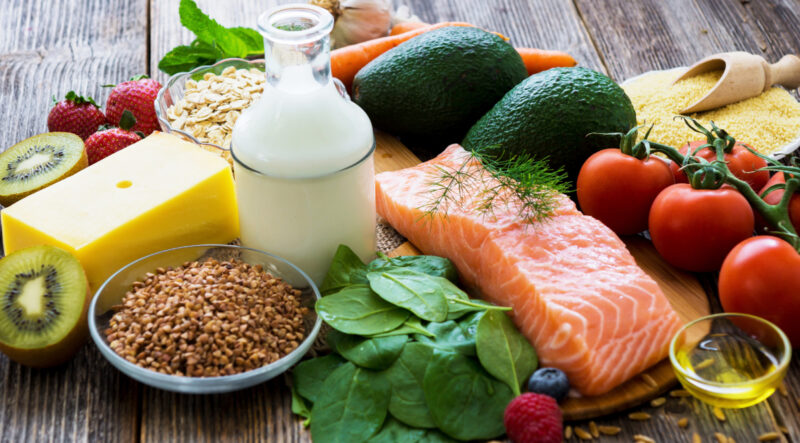Canada needs to intensify agri-food and aquaculture production
“With rapidly rising food prices and the growing spectre of global food shortages, Canada not only has the potential, but an obligation, to support food production as a top policy priority.” – Canadian food producers
By Fabian Dawson
SeaWestNews
Canadian food producers are calling on the Trudeau Liberals to create predictable and efficient regulations to reduce barriers to investment, innovation and growth in the country’s agri-food and aquaculture sectors.
“It is time for Canada to intensify food production to sustainably and affordably feed Canadians and the world,” the food producers said in an open letter to Prime Minister Justin Trudeau and eight members of his cabinet.
The letter is signed by the Canadian Aquaculture Industry Association (CAIA), Canadian Canola Growers Association, Canadian Federation of Agriculture, The Canadian Meat Council and the Global Cold Chain Alliance, among others.
The group is proposing two areas for immediate focus:
- Make Secure Food Production and Supply a Top Consideration in Policy and Funding Decisions:
Canada’s domestic food production capacity must not only be protected, but fostered through supportive regulatory, political and policy decisions. Political and regulatory and funding decisions in the near term such as agriculture’s Next Policy Framework should prioritize food security and productivity in the policy and decision-making process. This must include a focus on supply-chain resiliency to ensure Canada has the ability to get our products to the markets that need them most. With the right policy and regulatory environment, Canada’s food producers can not only maintain, but increase levels of food production of all types.
ii) Focus on an Agile, Modern Regulatory Environment that Supports Production Growth:
The 2019 Agri-Food and Aquaculture Roadmap highlighted that predictable and efficient regulations are needed to reduce barriers to investment, innovation and growth. We recommend an immediate review of the status of all outstanding projects in the Roadmap and renewed attention to their completion. In addition, we suggest that the Agile Regulations Committee take a more focused approach, targeting a small number of regulatory changes at a time to achieve results.
“Prime Minister and Ministers, now is the time to double efforts to realize Canada’s commitment to delivering the best, sustainable and high-quality and affordable food to Canadians, while also growing jobs, driving economic growth and supplying this food to the world,” the open letter read.
“With rapidly rising food prices and the growing spectre of global food shortages, Canada not only has the potential, but an obligation, to support food production as a top policy priority.
“With the war in Ukraine, ongoing challenges from COVID, global supply chain problems and environmental shocks from climate change, Canadians and citizens around the world are facing higher food costs and shortages. The poor are – and will be – disproportionately affected.
“Securing food for Canadians and others, particularly for developing countries and alleviating poverty, is of fundamental importance.”
The letter follows a statement by Canada’s top fisheries and aquaculture scientists, who urged the public and politicians not to believe the claims against salmon farms being made by activists, saying their widely propagated assertions are not backed by science.
Signalling that the Trudeau Liberals should not be bowing to the demands of the anti-fish farm activists, the scientists said in their open letter said : “ministers charged with making decisions on the future of salmon aquaculture should trust the scientific facts that were presented in the recent CSAS (Canadian Science Advisory Secretariat) reports concerning an industrial food sector that offers Canadian food security, and that is increasingly being adopted by First Nations along B.C.’s enormous coastline.”
“Home-grown, ocean-farmed salmon is a valuable food resource for Canadians. It is an affordable, highly nutritious protein with year-round access”, the scientists said in response to activists, who have been claiming without a shred of evidence, that studies showing open-net salmon farms pose a threat to wild stocks are being covered up.
The letters, come as the Federal Government is set to make a decision on 79 salmon farming licences which are set to expire June 30.
The licences have been in limbo after the government decided to phase out salmon farms in BC’s Discovery Islands as part of a wider pre-election promise to develop a plan by 2025 to transition all open net salmon farms on the west coast.
A Federal court has since ordered the Discovery Islands decision be set aside.
British Columbia’s indigenous and non-indigenous coastal communities will lose more than 4,700 jobs and $1.2 billion in economic activity annually, if the 79 salmon farming licences are not renewed, according to a financial analysis by the BC Salmon Farmers Association.
Canada’s aquaculture industry, especially salmon farming, generates over $5.2 billion in economic activity, $2.1 billion in GDP, and employs over 21,000 Canadians.
The current regulatory framework for aquaculture in Canada, involves multiple provincial and federal departments, with the Department of Fisheries and Oceans (DFO) as the lead agency. Environment and Climate Change Canada (ECCC), Health Canada, the Canadian Food Inspection Agency (CFIA), and Transport Canada also play roles in the management of aquaculture in Canada.
Canada remains the world’s only major farmed seafood producing country without modern national legislation specifically designed to govern a responsible and sustainable aquaculture industry.
This has led to significant uncertainty for the aquaculture industry, especially for salmon farmers in British Columbia, where there is no clear, predictable path forward for tenure and licence renewals.

